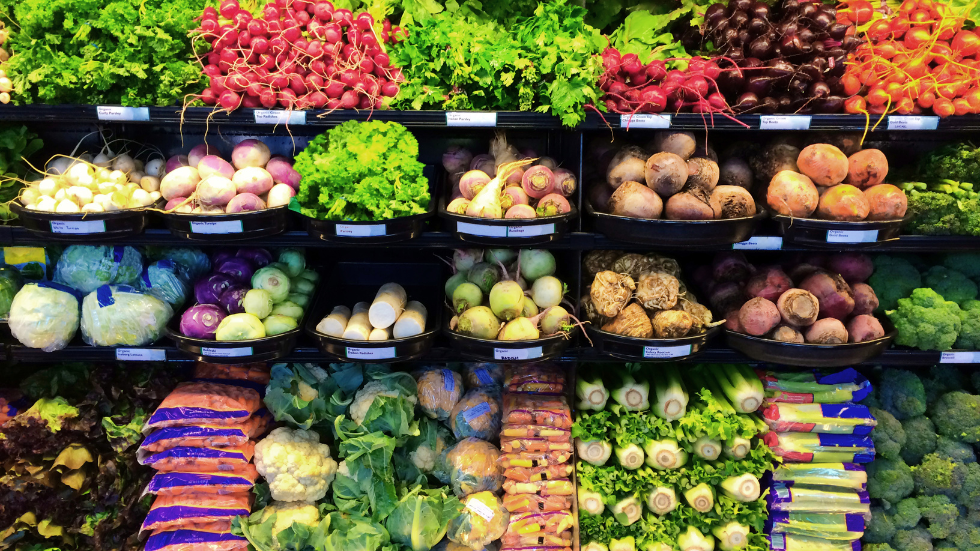Should I only be eating organically grown produce? Is it okay to eat conventionally grown produce? You have a choice! And no matter the choice, it’s still a healthy option. Let’s understand the differences and similarities between organic and conventional produce.
Organic produce has not been sprayed with synthetic fertilizers and/or pesticides but is instead sprayed with natural fertilizers and/or pesticides. Organic farms are generally more expensive to run due to the cost of natural fertilizers and the prices of materials used in organic farming. Conventional produce has been sprayed with synthetic fertilizers and/or pesticides. What’s similar? Both organically and conventionally grown produce contain similar amounts of high-quality nutrients – vitamins, minerals, antioxidants, and fiber.
Regardless of what you choose, eat your fruits and vegetables! Only 1 in 10 Americans are consuming the recommended amount of produce each day. Adults should consume 1 ½ – 2 cups of fruit and 2 – 3 cups of vegetables daily. The CDC reports that adequate amounts of produce supports a healthy immune system and may lower your risk of several chronic diseases such as type 2 diabetes, cardiovascular diseases, and some cancers. So, get them however you wish – fresh, frozen, canned, organic, or conventional!
When deciding which to buy, ask yourself these questions:
Is it within my food budget to purchase organic food? What do I have access to – conventional or organic produce? What are my priorities when it comes to purchasing produce? Perhaps these are some questions you may have thought about:
√ I want to purchase organic so I can reduce my exposure to pesticide residues.
- You don’t need to buy everything organic. Start with the produce you consume most.
- If a fruit or vegetable has a thick skin (bananas, avocadoes, melons), pesticides may be less likely to permeate the skin.
- Grow your own garden or herb garden.
√ I want produce with the most nutrients.
- Eating a wide variety of fruits and vegetables will help adopt a healthy diet – no matter if it’s organically or conventionally grown.
- Look for locally grown produce. Fruits and vegetables are picked at peak ripeness, when they’re most dense with nutrients.
√ How can buying fruits and vegetables fit into my budget?
- Consider purchasing conventionally grown produce as they tend to be less expensive than organic – and remember, you’re still getting adequate nutrients.
- Shop sales! Check out your store’s circular for weekly deals.
- Shop in-season. Purchase strawberries in the spring or peaches in the summer.
- Don’t forget about frozen or canned fruits and vegetables. These can be very affordable options and bonus – they go on sale!
Pro Tip – Always be sure you’re washing your produce before consumption.
Want to try other ways to eat fruit other than raw? Waves in the Kitchen – Cooked Fruit
Need ideas for cooking vegetables? So Many Ways to Prepare Vegetables
By Michele DiCristofaro MS, RD, LDN

